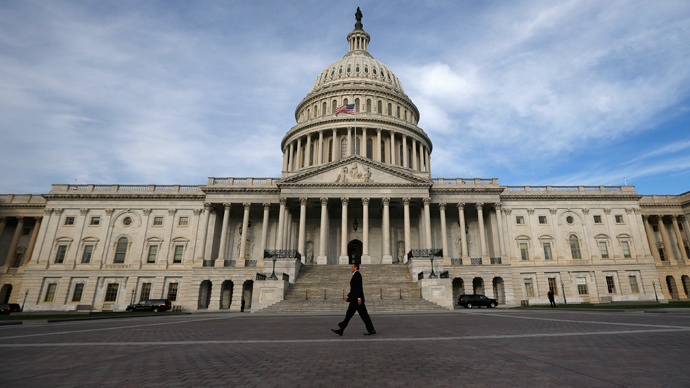‘Powerful people in the West and in Kiev do not want a Ukrainian settlement’ – Prof. Stephen Cohen

Arguing that there is a peace and war party in almost every capital, Professor Stephen Cohen, scholar of Russian studies at Princeton and New York Universities, told RT he believes the war party in Washington is against the Minsk agreement.
US policies in Ukraine have failed to achieve their goals. With violence flaring up once again, and relations fraught with tensions, diplomacy seems to be the best option. But is there a consensus in the US on the acceptable terms of a political settlement, and how are the dynamics of US internal politics likely to affect its policy toward Russia, especially as the 2016 presidential race heats up?
To find answers to these questions RT’s program “Worlds Apart” talked to Professor Stephen Cohen, Professor of Russian Studies and History Emeritus at NYU, and Professor of Politics Emeritus at Princeton University.

RT:A few weeks ago US Vice President Joe Biden said that “everybody wants an end to this conflict in Ukraine, but the question is on whose terms and how will it end.” Are the terms to end this conflict are still being negotiated and if so what options are on offer?
Stephen Cohen: My perspective is different from that of Vice President Biden. We are now after all in almost two years – a year and a half – of a new Cold War between the US and Russia – an exceedingly dangerous confrontation over Ukraine, which I think and I’ve said this for months could easily become as dangerous as the Cuban missile crisis was. The politics of this have now spread far and wide including in Europe. It seems to me, and this is my fundamental analysis, that in almost every capital – Washington, Brussels and certainly in Kiev, and even to some degree in Moscow – there is what I call a peace and a war party. The Minsk agreements, which were agreed upon by the Chancellor of Germany, the President of France, the President of Ukraine and of course President Putin of Russia represented then a peace party. It set out in addition to a ceasefire in Ukraine very far reaching, fundamental terms of negotiation to end the civil war in Ukraine, to end the proxy war between the West and Russia. It’s clear to me that there are powerful people in the West and in Kiev who do not want a negotiated settlement.
READ MORE: Stephen Cohen: A lone media warrior in the cause of Russian-American rapprochement
RT:Vice President Biden, who recently said that he talks to either PM Yatsenyuk or President Poroshenko on almost a weekly basis – that’s what he said - do you think that Biden belongs to the peace or war camp when he is on the phone with them? Does he preach reconciliation?
SC: He says he talks to them three times per week not once a week. But we have evidence, something very dramatic just happened. As you know, in late May Secretary of State John Kerry went to Sochi. First he met with Russian Foreign Minister Sergey Lavrov and then, remarkably, he met for four hours with President Putin. It was absolutely clear from what was said in Sochi at the press conferences afterwards that Kerry’s mission had been to say that the US, the Obama administration, now fully backed the Minsk agreement. That would put Kerry in the peace party. It was kind of a surprise because he had been taking a very hard line. However, look what then happened. Kerry was attacked, literally criticized, for having gone to Sochi by members of the Obama administration. The most vivid example reported in the New York Times last Sunday I think was that a former very close policy aide to Vice President Biden told the reporter they didn’t know why Kerry had gone to Sochi, and that he had sent bad messages and that his trip had been counterproductive. So you conclude from this - and it confirms my thesis - that there is a war party in every capital and even in the White House itself.
RT:Despite this cheerful good guy image that Mr. Biden has, he also has, I would say, a militaristic track record in the Senate. Here was somebody who was in favor of the second Iraq war, NATO’s bombing of Yugoslavia, he is in favor of NATO’s expansion eastwards. Do you think there might be a division within the administration itself and if so which side is President Obama more likely to listen to?
SC: I just gave you the evidence. It’s apparent that there is a division inside the administration. Kerry goes to Sochi, says certain things with Lavrov and with Putin, he criticizes - by the way, this was the first public criticism I have ever seen by a member of the Obama administration of the Kiev regime, of its leadership. He criticized Poroshenko for saying that he, Poroshenko, would by force take Crimea and Donbass. That’s completely contradictory to what Poroshenko agreed to in Minsk and Kerry criticized him publicly. He said, “if that’s what Poroshenko has on his mind, I advise him to drop this idea and support Minsk instead.”
READ MORE: Why we must return to the US-Russian parity principle - Prof. Stephen Cohen
That was practically a revolution in US foreign policy on the part on Kerry. But then what happened? Kerry is criticized. So the answer to your question is clearly there is a division. But to put it all on Biden, who’s probably not the most influential person at the moment, misses the larger point that the policy toward Russia in the US today is completely bipartisan – it’s Democratic and it’s Republican, and this includes the crisis in Ukraine. And still worse, completely unlike the debate we had during the last Cold War there is no public opposition in the Democratic or the Republican Party, in the Senate or in the mainstream media. This is a much more serious problem than whatever Biden thinks or doesn’t think or has done in the past. There is simply no opposition at all. We thought for a brief moment that what Kerry did in Sochi was the beginning of a debate, or at least an alternative position in Washington, but he was attacked, he broke his leg, he disappeared. And now as you see what happened in Europe at the G7 a couple of days ago, and what Obama said there – Sochi has been forgotten.
The statements, views and opinions expressed in this column are solely those of the author and do not necessarily represent those of RT.
The statements, views and opinions expressed in this column are solely those of the author and do not necessarily represent those of RT.












